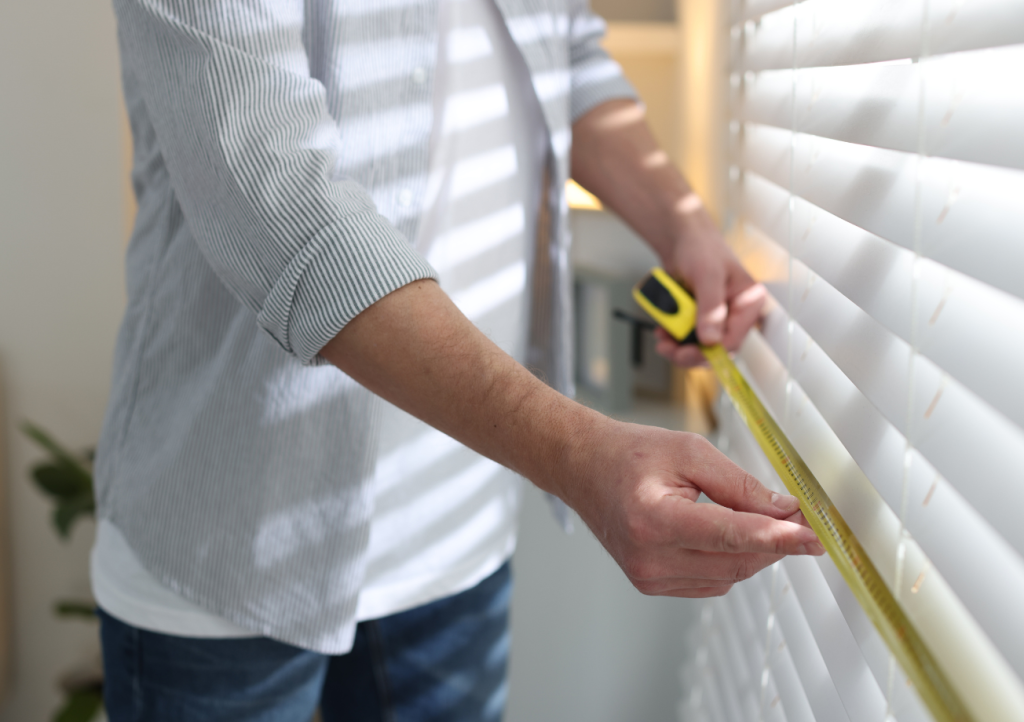The window treatment decision process involves more than just selecting styles and colors. One of the most important choices you’ll make is whether to invest in custom-made blinds and shades or opt for ready-made alternatives from retail stores. This decision impacts everything from initial cost and installation experience to long-term performance and home value.
Understanding the real differences between custom and store-bought options helps you make an informed choice that aligns with your priorities, budget, and expectations. While the upfront cost difference is obvious, the long-term value proposition involves factors that aren’t immediately apparent when comparing price tags.
The Custom Window Treatment Advantage
Custom window treatments are manufactured specifically for your windows after professional measurement and consultation. Every aspect—from materials and colors to operating mechanisms and installation hardware—is selected to meet your exact specifications and requirements.
Professional Measurement Process: Custom treatments begin with precise measurement by trained professionals who understand the nuances of window construction, wall irregularities, and installation requirements. This attention to detail ensures a perfect fit and optimal performance.
Material Quality Differences: Custom manufacturers typically use superior materials compared to mass-produced alternatives. Fabrics are often more durable, hardware is engineered for longevity, and construction methods prioritize performance over cost-cutting measures.
Manufacturing Precision: Custom treatments are built to exact specifications with quality control processes that ensure consistent results. Each piece is individually crafted rather than mass-produced, allowing for attention to detail that impacts both appearance and functionality.
Store-Bought Window Treatments: Understanding the Limitations
Ready-made blinds and shades offer the appeal of immediate availability and lower upfront costs. However, these apparent advantages come with trade-offs that become evident during installation and daily use.
Standard Sizing Constraints: Store-bought treatments are manufactured in standard increments, typically 1/8-inch or 1/4-inch variations. Even if you find a “close” size match, gaps around window edges compromise both appearance and functionality.
Limited Material Options: Retail chains focus on popular, cost-effective materials rather than offering comprehensive selections. This limitation often means settling for something close to your preference rather than getting exactly what you want.
Mass Production Quality: To maintain competitive pricing, store-bought treatments often use lower-grade materials and simplified construction methods. While this reduces costs, it also impacts durability and performance over time.
Fit and Installation: Where Differences Become Obvious
Custom Fit Precision: Professional measurement for custom treatments accounts for window irregularities, wall variations, and architectural details that affect installation. The result is treatments that look built-in rather than added-on.
Installation Complexity: Custom treatments include professional installation as part of the service. Experienced installers understand how to handle various window types, mounting surfaces, and potential complications that arise during installation.
Store-Bought Installation Challenges: DIY installation of store-bought treatments often reveals sizing issues that weren’t apparent in the store. Gaps around edges, uneven mounting, and operational problems are common when a precise fit isn’t achieved.
Hardware and Mounting Considerations: Custom installations include appropriate mounting hardware selected for your specific walls and windows. Store-bought kits often include generic hardware that may not be suitable for all installation situations.
Quality and Durability Comparison
Material Longevity: Custom treatments typically use materials selected for long-term performance rather than the lowest cost. Higher-grade fabrics resist fading and wear better, while superior hardware maintains smooth operation over years of use.
Construction Methods: Custom manufacturing allows for construction techniques that prioritize durability. Reinforced stress points, quality stitching, and proper component sizing contribute to treatments that maintain their appearance and function longer.
Warranty Coverage: Custom window treatment companies typically offer comprehensive warranties covering both materials and workmanship. This coverage often includes service calls for adjustments or repairs during the warranty period.
Store-Bought Durability Factors: Mass-produced treatments often use materials and construction methods that prioritize cost over longevity. While the initial appearance may be acceptable, premature wear, fading, and mechanical failures are more common.
Cost Analysis: Understanding True Value
Initial Investment Comparison: Custom treatments typically cost 2–3 times more than store-bought alternatives initially. However, this comparison doesn’t account for the total cost of ownership over time.
Hidden Costs of Store-Bought Options:
- Replacement costs when premature failure occurs
- Additional hardware is needed for proper installation
- Professional installation fees if DIY proves problematic
- Energy costs from poor fit and inferior insulation properties
- Potential window or wall damage from incorrect installation
Long-Term Value Proposition: Custom treatments often last 15-20 years or more with proper care, while store-bought options may require replacement every 5-7 years. When calculated over time, the cost per year often favors custom options.
Home Value Impact: Quality window treatments are considered permanent improvements that add to home value. Custom treatments enhance this value more significantly than obviously inexpensive alternatives.
Performance and Functionality Differences
Light Control Precision: Custom treatments are engineered for optimal light control based on your specific windows and room requirements. Professional consultation ensures you get the right opacity, color, and operational features for each application.
Energy Efficiency Considerations: Proper fit is crucial for energy efficiency benefits. Gaps around store-bought options reduce insulation, while custom treatments create proper seals that contribute to energy savings.
Noise Reduction Benefits: Custom treatments, particularly cellular shades and quality blinds, provide superior noise reduction when properly fitted. The air gaps that result from poor-fitting store-bought options eliminate these benefits.
Operational Smoothness: Quality hardware and proper installation result in smooth, effortless operation that continues over years of use. Store-bought treatments often develop operational issues as components wear or installation problems manifest.
Aesthetic and Design Considerations
Style Coordination: Custom treatments offer unlimited color and pattern options, allowing perfect coordination with existing décor. Store-bought selections are limited to popular options that may not match your vision.
Proportional Appearance: Professional design consultation ensures treatments are proportionally appropriate for window size and room scale. Store-bought treatments often look either oversized or undersized due to limited sizing options.
Architectural Integration: Custom treatments can be designed to complement architectural details and enhance window features. Standard treatments often ignore these details, creating a generic appearance.
Timing and Convenience Factors
Custom Treatment Timeline: Custom orders typically require 2-4 weeks from measurement to installation. While this requires planning, the result is treatments perfectly suited to your needs.
Immediate Availability Appeal: Store-bought treatments can be purchased and installed immediately, which appeals when quick solutions are needed. However, rushed decisions often lead to compromises that become regrets.
Professional Service Benefits: Custom treatment companies provide ongoing service and support, including adjustments, repairs, and advice. This relationship continues beyond the initial installation.
Making the Right Choice for Your Situation
Choose Custom When:
- Long-term home ownership is planned
- Quality and durability are priorities
- Perfect fit and optimal performance matter
- The budget allows for a higher initial investment
- Professional appearance is important
- Energy efficiency benefits are desired
Consider Store-Bought When:
- A temporary housing situation exists
- Budget constraints are significant
- Standard window sizes provide an acceptable fit
- Basic functionality meets needs
- Quick installation is required
Long Island-Specific Considerations
Climate Impact: Long Island’s varied seasonal conditions benefit from the superior insulation and weather resistance of custom treatments. The energy savings can be significant over time.
Home Value Considerations: Long Island’s competitive real estate market rewards quality improvements. Custom treatments contribute more significantly to home value and appeal to discerning buyers.
Local Service Advantages: Working with local custom treatment providers ensures ongoing service availability and familiarity with area homes and architectural styles.
Questions to Ask Before Deciding
Consider your priorities and circumstances:
- How long do you plan to stay in your current home?
- What’s your total budget for window treatments?
- How important are perfect fit and optimal performance?
- Do you have standard-sized windows or unusual shapes/sizes?
- Are energy efficiency benefits important to you?
- Do you prefer professional installation and service?
Making an Informed Investment
The choice between custom and store-bought window treatments ultimately depends on your priorities, budget, and expectations. While store-bought options serve immediate needs at lower upfront costs, custom treatments provide superior performance, longevity, and value over time.
Consider the total cost of ownership, including replacement needs, energy impacts, and home value effects when making your decision. For most Long Island homeowners planning to stay in their homes, custom treatments are the better long-term investment.
Ready to explore your options for your windows? Long Island Custom Blinds offers free in-home consultations to discuss your specific needs and budget. Our team will provide honest guidance about when custom treatments make sense and when alternative solutions might be appropriate. Contact us today to schedule your consultation and discover the difference professional-quality window treatments can make in your home.


